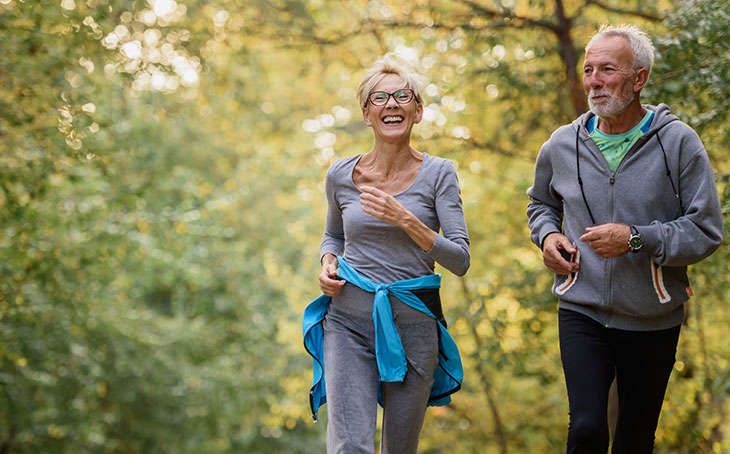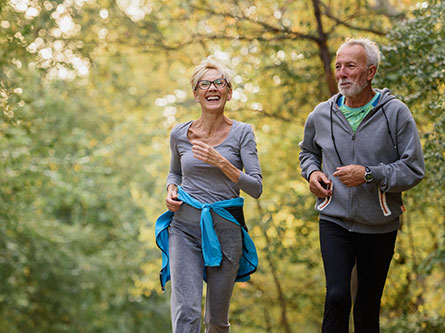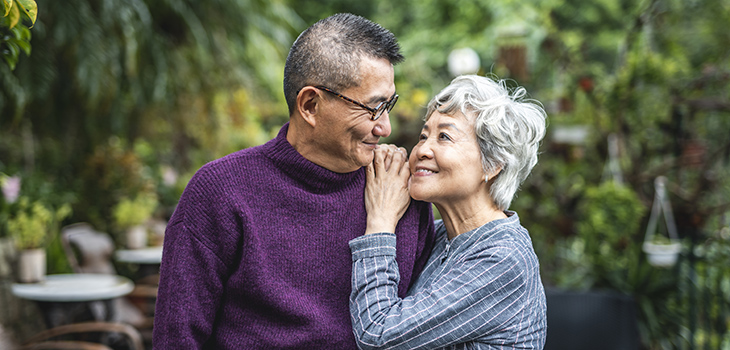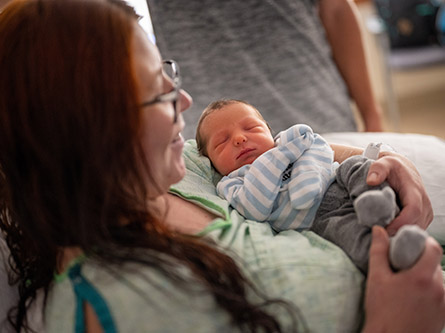
Falling can happen to anyone and can cause major injuries. Every 11 seconds, an older adult in the U.S. is seen at an emergency department for a fall-related injury. One out of five falls causes a serious injury such as broken bones or a head injury, according to the Centers for Disease Control and Prevention (CDC).
Each person has their own fall risks due to their medical history, physical condition, living environment, and daily activities. There is no one-size-fits-all cure for limiting your fall risk. But there are guidelines to follow to make it less likely that you will be seriously injured in a fall.
The good news is that there are simple things you can do to help prevent falls. The National Council on Aging recommends these six steps to reduce your risk of falling.
1. Find a good balance and exercise program
Look for a type of exercise that you enjoy and bring a friend to work out with you. Exercises that improve your strength, balance, and flexibility lower your chances of falling. Exercise can also increase your confidence and improve your mental health. Ask your doctor if you need suggestions about which exercises would be a good fit for you.
Check out wellness programs for ages 50+ in Sacramento
2. Talk to your health care provider
Let your health care team know if you have fallen, feel unsteady, or are worried about falling. Your provider can review your symptoms, help find out what’s contributing to your fall risk, and work with you to reduce your risk of falls. They can assess your balance, how you walk, and discuss how chronic conditions impact fall risk. You can also have your doctor check your feet and find out what footwear is best for you.
3. Regularly review your medications with your doctor or pharmacist
Medications that are meant to improve your health may have side effects that cause dizziness or balance issues. This includes prescription medications, as well as other health aids like vitamins, supplements, and sleep aids. Talk with your doctor about how these interact. Only take medications as prescribed.
4. Get your vision and hearing checked every year and update your eyeglasses
Being able to see and walk comfortably can prevent falls. Visit the eye doctor and have your eyeglass prescription updated at least once a year.
5. Keep your home safe and remove fall hazards
Give yourself a home safety checkup, looking to remove tripping hazards, and improve lighting and safety in bathrooms. The nonprofit Rebuilding Together Sacramento offers tips for home safety including grab bars, handrails, and more. You can call them at 916-455-1880, ext. 1 to learn about their services. They also offer free services for low- to moderate-income homeowners.
6. Talk to your family members about falls
Fall prevention is a team effort. Family and friends can provide extra hands, or another set of eyes to check and rid your home of fall hazards. They can also modify family outings to ensure that seniors can safely continue doing things they enjoy, while taking precautions to prevent falls.
Taking on all six of these steps today may be overwhelming. Choose one action item to start with during this year’s Fall Prevention Awareness Week. You can take charge of your own health and improve safety for yourself and others in your home.
Programs to help you prevent falls
UC Davis Health offers fall prevention classes titled “A Matter of Balance.” This eight-session workshop aims to reduce the fear of falling and increase activity levels among older adults. It includes class discussions and activities, and mild exercises starting in Session 3. This class is best for seniors who can move without help and is not suitable for people with dementia.
UC Davis Health patients can register for a class by calling 916-764-0718. Anyone can learn about other agencies offering workshops in the area by calling Jennifer Rubin at 916-734-9784.
For more information on senior fall prevention, check out the UC Davis Health Injury and Violence Prevention Program.




